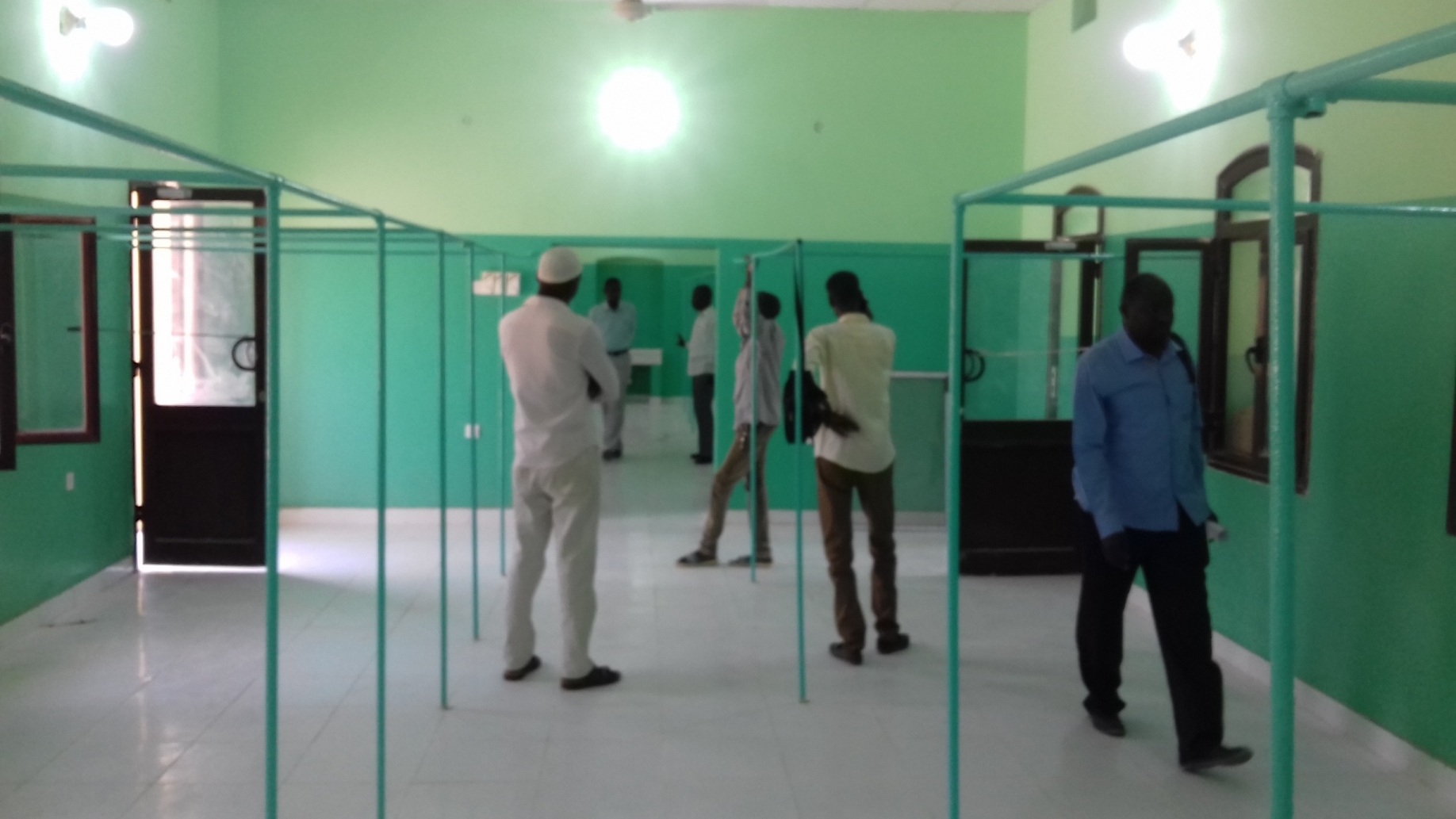West Darfur emergency situation reports
Overview
On 22 April, armed clashes in and around Kereneik Town resumed as the inter-communal conflict between Arab Nomads and the Masalit tribe broke out.
On 23 and 24 April, armed gunmen attacked two hospitals in the towns of Kereneik and El Geneina, resulting in the death of two health care workers and looting of these facilities. WHO and other humanitarian partners demand all parties to the conflict in Sudan respect the safety and neutrality of health workers, patients, and health facilities and ensure a safe path for supplies to arrive in hospitals which are reporting severe shortages of trauma supplies, medicines, and anesthesia drugs.
Violent trauma resulted in over 221 deaths (210 in Kerienek and 11 in El Geniena) and 162 wounded (FMoH data), and large influxes of newly displaced civilians fled towards the town’s military compound. The fighting has affected the whole population of Kereneik, noted at 12 000 households.
65 injured patients were evacuated from Kerniek to El Geneina. Of these, 15 patients were referred to Khartoum and the rest remained in Kerniek hospital and are currently receiving medical care, including general surgical and orthopedic interventions.
Over the past 24 hours, heavy fighting stopped, but the situation remains tense and unpredictable.
Situation reports on Sudan's circulating vaccine-derived poliovirus-2 outbreak response
Situation overview
- In 2021, there is no reported cVDPV2 case. The most recent confirmed cVDPV2 case (SUD.SDA.2020.042) was noAfied reported from South Darfur with date of onset 18 December 2020.
- During the previous week, the NaAonal Polio Laboratory (NPL) reported one L20B posiAve isolates from the environmental sample, collected April 2021. Final classificaAon is pending.
- In 2020, Sudan country program reported a total of 58 confirmed circulatory vaccine derived polio virus 2 (cVDPV2) cases, (3 confirmed by contacts), 14 posiAve contacts and 4 healthy children (HC) in 15 states, as well as, isolaAon of cVDPV2 from sewage samples in Khartoum state.
- In 2021, The Total AFP cases were 202, out of them 170 were discarded as Non-Polio AFP cases, and 32 cases pending classificaAon.
- The team has been working on analysis of report from the internal AFP surveillance review in four states of North Darfur, Central Darfur, West Kordofan and Northern states. Country team is developing a detailed plan of acAon to implement recommendaAons and further enhance quality of AFP surveillance system.
Read the latest situation report, 21 May 2021
Previous reports
cVDPV-2 outbreak response situation report, 30 April 2021
cVDPV-2 outbreak response situation report, 16 April 2021
cVDPV-2 outbreak response situation report, 15 March 2021
cVDPV-2 outbreak response situation report, 19 February 2021
cVDPV-2 outbreak response situation report, 5 February 2021
cVDPV-2 outbreak response situation report, 2 February 2021
cVDPV-2 outbreak response situation report, 15 January 2021
cVDPV-2 outbreak response situation report, 13 December 2020
cVDPV-2 outbreak response situation report, 02 December
cVDPV-2 outbreak response situation report, 26 November 2020
cVDPV-2 outbreak response situation report, 18 November 2020
cVDPV-2 outbreak response situation report, 10 November 2020
cVDPV-2 outbreak response situation report, 4 November 2020
cVDPV-2 outbreak response situation report, 28 October 2020
cVDPV-2 outbreak response situation report, 20 October 2020
cVDPV-2 outbreak response situation report, 16 October 2020
cVDPV-2 outbreak response situation report, 6 October 2020
cVDPV-2 outbreak response situation report, 28 September 2020
WHO supports Darfur health facilities rehabilitation: 3 million people to receive better access to care
 Rehabilitation of El Fasher teaching hospital (Photo: WHO Sudan).
Rehabilitation of El Fasher teaching hospital (Photo: WHO Sudan).
In Sudan’s five western states of Darfur, access to health facilities like clinics and hospitals is not something people take for granted. In a region roughly the size of Spain, over 9 million people share just 612 primary health care facilities. On average, one facility must serve over 15,000 people. Especially in rural areas, Darfuris often have to travel long distances to reach the facilities.
However, since the end of 2016 a new project has begun to improve this access. By rehabilitating 30 health facilities in Darfur by June 2018, this endeavor will improve the availability of health care for more than 3 million people - or about a third of the entire population of Darfur. WHO, UNICEF, UN HABITAT, and UNFPA have all joined hands with Sudan’s Ministry of Health and the Darfur State Ministries of Health, and count on the generous support of the Qatar Development Fund to do so, through the UN Darfur Fund (UNDF) Foundational and Short Term Activities (FaST).
In addition to rehabilitating 30 health facilities, the project will improve the range and quality of services provided in these hospitals, clinics and health centers. This means more and better doctors and other personnel, as well as new medical equipment where it is most needed.
Over the past months, the project recorded several important milestones. For rehabilitation, a total of 13 out of 30 health facilities are moving towards completion across Darfur. Meanwhile, more and better medical personnel are being trained: 172 medical students are attending the Academy of Health Sciences (AHSs) in Nyala, El Fasher and El Geneina. The doctors-to-be will continue their education for the coming three years, and go on to work for the health of Darfur’s people. Finally, the health facilities received important equipment for Operation Theaters and Intensive Care Units, including beds, oxygen concentrators, ventilators and monitors, as well as surgical instruments and office furniture.
Once all 30 health facilities are rehabilitated, they will be handed over to local authorities from Darfur’s State Health Ministries. Under their leadership, the people of Darfur will have more access to quality health care in the long run. This end goal was already achieved for 10 facilities, including most recently the Shushta health facility in West Darfur, and the Um Labassa rural hospital in South Darfur.








